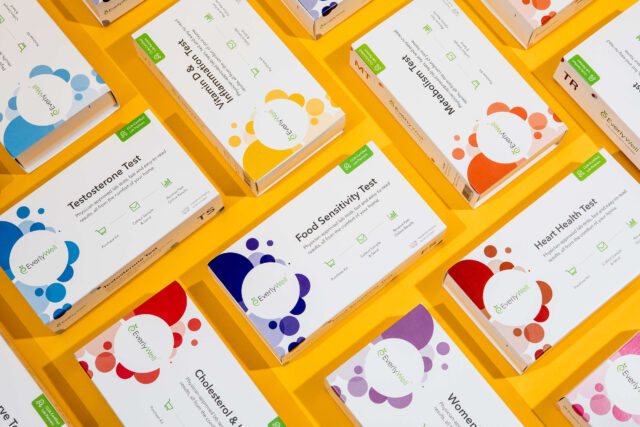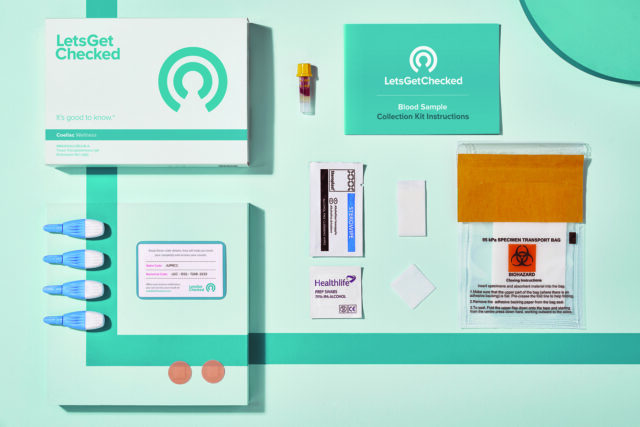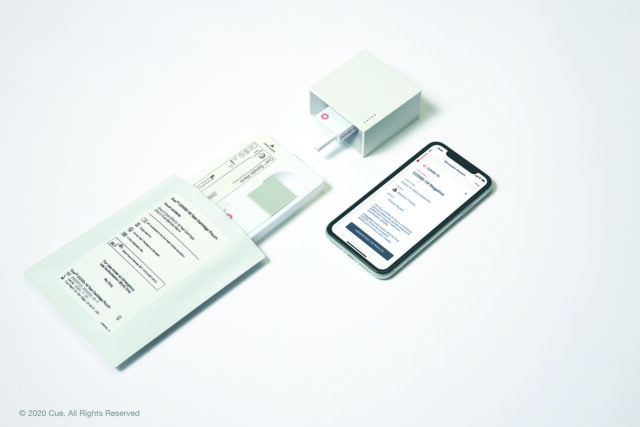
By Julia Szabo
In September, Walmart made headlines announcing its planned use of drones for a pilot program to deliver QuestDirect’s at-home COVID-19 Active Infection test kits. Available since May by the clinical lab powerhouse QuestDiagnostics, the kits enable consumers to swab their own lower nasal passage, then expedite their home-collected sample to one of their labs for testing. (You’ll probably pay for this screening test out-of-pocket.)
The results are released via an online portal. Banish low-tech visions of ordinary household cotton swabs: This is high-tech health with a dose of DIY ingenuity. What QuestDirect introduced this spring is now mainstream, with many more options as innovators give the New Jersey-based Quest healthy competition. In April, Pixel by LabCorp (aka Laboratory Corporation of America Holdings, headquartered in North Carolina) became the first at-home self-collection kit to secure an emergency use authorization (EUA) from the Food and Drug Administration (FDA). “At LabCorp, we’re on a mission to improve health and improve lives,” reads a statement on the company website. “Now you can access COVID-19 testing through the same world-class lab trusted by physicians across the United States from the comfort and security of your own home. No trip to the doctor’s office or other health care provider is required.”
When LabCorp got the emergency use authorization, FDA commissioner Stephen M. Hahn, MD, assured Americans that the federal agency was actively encouraging the research and development of safe and accurate at-home sample collection options. “Throughout this pandemic, we have been facilitating test development to ensure patients access to accurate diagnostics, which includes supporting the development of reliable and accurate at-home sample collection options,” he says. “We worked with LabCorp to ensure the data demonstrated from at-home patient sample collection is as safe and accurate as sample collection at a doctor’s office, hospital or other testing site. With this action, there is now a convenient and reliable option for patient sample collection from the comfort and safety of their homes.”

According to LabCorp’s chairman, president and CEO Adam Schechter, there are two types of test that LabCorp is performing for COVID-19: “One that tells you if you have the virus,” he says, “and another test that tells you if you have had the virus in the past.” Promising “no upfront cost,” LabCorp’s website says, “We’ll bill your insurance for the test. If you don’t have insurance, we’ll handle that too, through public funding. All we ask is that you use and return the kit you request for testing, since inventory is limited.”
In May, two more brands received an EUA from the FDA to produce collection kits: EverlyWell of Austin, Texas, whose CEO and founder, Julia Cheek, was a hit on Shark Tank in 2017; and LetsGetChecked by PrivaPath Diagnostics, which has offices in New York and Dublin. What makes them different? With both EverlyWell and LetsGetChecked, customers who test positive get the offer of a free telehealth consultation with an MD. “We’ve helped more than half a million people test their cholesterol levels, their fertility hormones, food sensitivities, colon cancer, even STDs and so much more from home,” says Cheek. “We’ve done a lot of work to make the testing experience as seamless and painless as possible.”
LetsGetChecked points to its proprietary transport tube and solution (the liquid deactivates the virus), and then samples are delivered to their lab. While other authorized tests on the market typically use saline solution for sample delivery, the LetsGetChecked solution “is designed for everyone’s safety, protecting the integrity of the SARS-CoV-2 RNA, while also effectively deactivating it, for safety during and after transport—meaning that the virus is deactivated, removing the risk of further contamination to postal services or anyone else who may come in contact with the sample during transit,” says a company spokesperson.

On June 12, a giant leap was made when San Diego-based Cue Health received FDA EUA authorization for its “Rapid, Portable, Molecular Point-of-Care COVID-19 Test.” Back in March, Cue Health was awarded $13 million by the U.S. Department of Health and Human Services Biomedical Advanced Research and DevelopmentAuthority (BARDA). The result of that investment is a “high-sensitivity molecular assay” that’s “fast and easy to use in any setting where point-of-care testing is required,” reads the company website. The Cue test detects the RNA of SARS-CoV-2, the virus that causes COVID-19, in just 25 minutes using a nasal swab sample from the lower part of the nose. The test runs on the compact and portable CueHealth Monitoring System, which performs rapid molecular analysis and transmits test results to the Cue Health App on a connected mobile device. Ayub Khattak, Cue founder and CEO, says that his product can do more than ease the burden on hospitals and clinics: It will help to heal an ailing nation, and “get our country back to work.”





